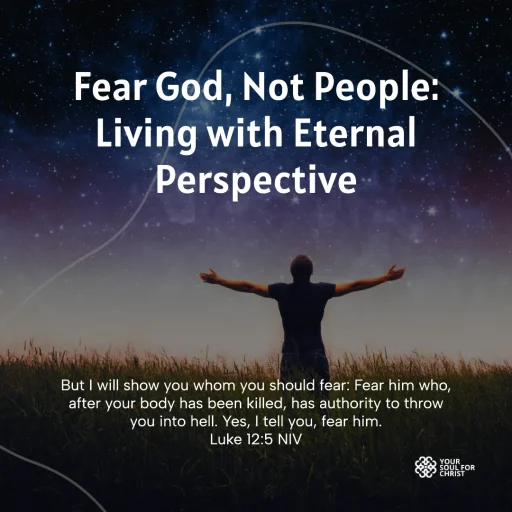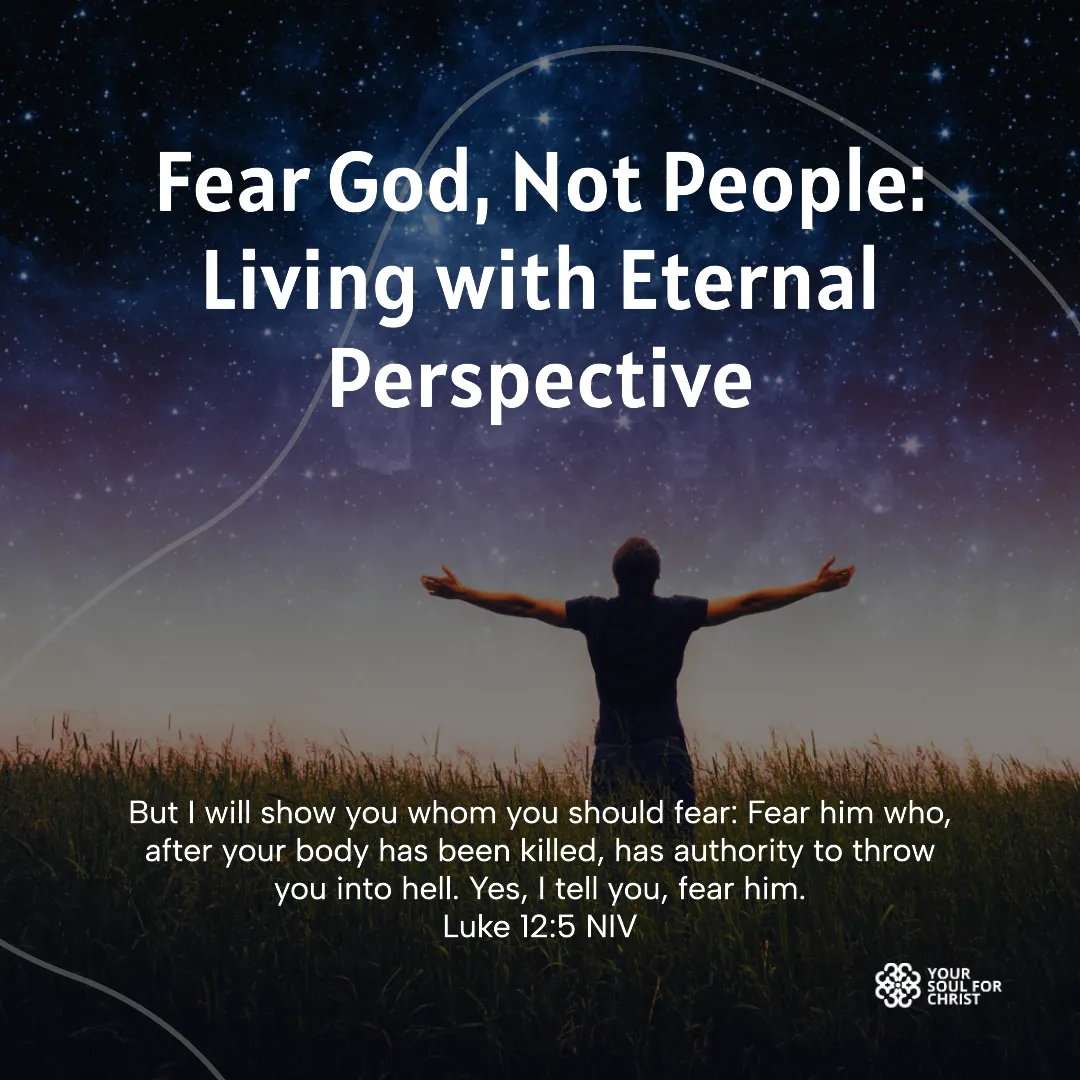Luke 12:5 NIV
But I will show you whom you should fear: Fear him who, after your body has been killed, has authority to throw you into hell. Yes, I tell you, fear him.
Jesus spoke plainly about the need to fear God above all else. In Luke 12:5, He redirected the crowd’s focus from human threats to eternal realities, reminding them that while people may harm the body, only God holds authority over both body and soul. These words strip away any illusion of misplaced fear and invite us to live with reverence for His ultimate authority.
Jesus speaks about fear in a way that reshapes priorities. Fear, in this context, does not mean terror that paralyses, but a profound reverence and recognition of God’s ultimate authority. He points out that the greatest danger is not what others can do to us, but what eternal destiny awaits us after death. In this way, He calls His followers to shift their perspective from temporary threats to eternal realities.
The wisdom of Proverbs also connects here. Proverbs 9:10 declares, “The fear of the Lord is the beginning of wisdom, and knowledge of the Holy One is understanding.” The biblical concept of fear is not merely dread of punishment but recognition of God’s majesty and rightful authority. When a person acknowledges this, wisdom begins to form because choices shift from temporary concerns to eternal consequences.
To apply this in the real world, consider how easily the fear of people drives decisions. A professional may compromise integrity to please a boss. A student may cheat to avoid failure. A leader may silence the truth to maintain popularity. In each case, the fear of human disapproval outweighs the fear of God’s authority. Yet when we reverse this, courage rises. The employee who values God’s authority tells the truth even when it costs. The student who fears God more than failure refuses dishonesty. The leader who reveres God speaks truth even when unpopular.
This fear of God liberates rather than enslaves. Human fear traps us into seeking approval and avoiding rejection, but reverence for God brings clarity and courage. When Shadrach, Meshach, and Abednego stood before Nebuchadnezzar in Daniel 3, they did not fear the furnace more than they feared disobedience to God. Their reverence for God’s authority made them unshakable in the face of fire. That same principle holds true today.
Luke 12:5 does not aim to terrify but to awaken. It calls us to stop giving ultimate power to temporary threats and start honouring the One who determines eternity. When the fear of God becomes greater than the fear of man, decisions align with eternal wisdom. This is not a call to cower before God but to respect His authority with such depth that every other fear loses its grip.
Living It Out
The fear Jesus describes becomes the foundation of courage, integrity, and hope. It forces us to ask hard questions: Do I live more concerned with God’s approval or with people’s opinions? Do my daily choices reflect reverence for His authority or submission to temporary pressures? The answer reveals whether I live for the moment or for eternity.

